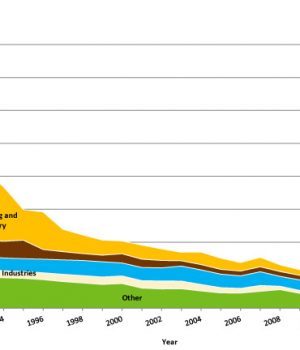News Analysis |
ISLAMABAD: The Pakistan Supreme Court issued orders on Wednesday authorizing the Pakistan Environmental Protection Agency (Pak-EPA) to shut down certain steel mills polluting the environment. When the issue was raised at court on Tuesday, Pak-EPA Director-General Farzana Altaf Shah mentioned the efforts taken on part of her organization to preserve the environmental impact of industrial activities in sectors I-9 and I-10 of Islamabad.
Currently, these sectors comprising of the capital’s industrial zone house 8 steel melting plants, 11 steel re-rolling mills, 25 flour mills, 5 oil and ghee mills, over 30 marble cutting mills, more than 10 pharmaceutical companies, two galvanizing works, and two metalworking plants.
The SC agreed with the report that no further time delays would be awarded to the industry stakeholders and mill owners, especially steel re-rolling and furnace mills, to operate without equipment for air pollution prevention.
“Operations of these steel units will remain closed until their owners follow all the environmental laws of the Pak-EPA,” a senior official from the Ministry of Climate Change reportedly stated.
Pak-EPA has been trying to gain judicial attention on the issue of air pollution and steel mills’ emissions in particular for around 30 years. The court ruling has been finally made in favor of the residents in the industrial sectors and adjoining areas.
Read more: Exploiting Pakistan’s steel mills
Although Islamabad is known for its greenery, according to environmentalists, the quality of its environment is depleting due to unchecked air and water contamination. Most of that is due to emissions from the industrial sector and mega-development projects that result in deforestation. Contaminant solid and liquid particles increase the possibilities of lung cancer and emergency-room visits especially for people suffering from asthma and cardiovascular problems.
Earlier in April, Shah pointed out, Pak-EPA had issued environment protection orders (EPOs) to two steel mills for untreated emissions causing significant pollution in the capital. The organization did not receive the expected support from law enforcement agencies as a result of which their efforts were in vain.
When the issue was raised at court on Tuesday, Pak-EPA Director-General Farzana Altaf Shah mentioned the efforts taken on part of her organization to preserve the environmental impact of industrial activities in sectors I-9 and I-10 of Islamabad.
Following an Environmental Tribunal by order of the Supreme Court, the mills were shut down but the owners’ regained access by breaking open the sealed gates and resuming the smelting process without approval from Pak-EPA. Consequently, Chief Justice Nisar decreed that no mill would be reopened without prior permission from legal authorities.
The Supreme Court has also issued a week’s ultimatum to all steel mills for the deposit of Rs5 million each as security until the emission regulating equipment is set up. This would include sealing the points of entry and exit for the mills by Pak-EPA. As for those mills that have already been issued the order before and had delayed their payment, the Supreme Court placed a financial penalty at 8% mark-up, with the proceeds going to the SC’s Diamer Bhasha and Mohmand Dam Fund.
Read more: Revival of steel mills
According to the Climate Change Ministry, the SC showed major concern towards the issue of how much water was being wasted by some steel mills and instructed the Metropolitan Corporation Islamabad to investigate the wastage.
Contaminant solid and liquid particles increase the possibilities of lung cancer and emergency-room visits especially for people suffering from asthma and cardiovascular problems.
The SC had requested the Human Rights Cell Director General, Khalid Tipu Rana, to file a report in tandem with Pak-EPA, regarding the industrial units within the capital. The subsequent reports of both organizations drew attention to the inefficient water usage and the thousands of gallons of water being wasted as a result of unethical practices.
Read more: Pakistan Steel Mills playing dirty as Renault struggles to enter Pakistan
The report also recommended having the steel mill owners to make data on emissions to be more easily available online. The report also mentions a 2016 agreement between Pak-EPA and all industrial stakeholders, including the steel mill owners, where it was decided that an inspection team could conduct surprise visits to ascertain the situation on emissions at any time and no future mills could be operated without installation of proper emissions treatment equipment, with effect from July 1, 2016.
Last but not the least, the SC agreed with the report that no further time delays would be awarded to the industry stakeholders and mill owners, especially steel re-rolling and furnace mills, to operate without equipment for air pollution prevention.














